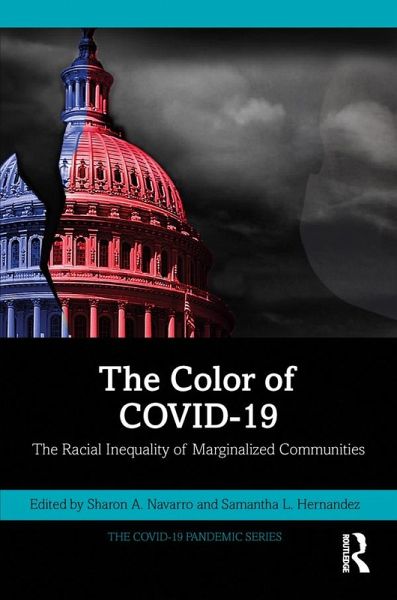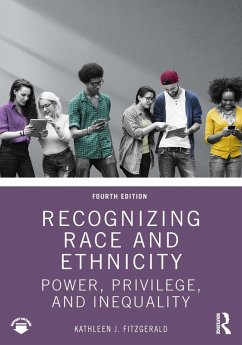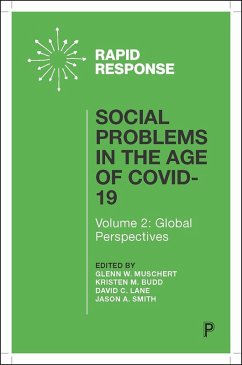
The Color of COVID-19 (eBook, ePUB)
The Racial Inequality of Marginalized Communities
Redaktion: Navarro, Sharon A.; Hernandez, Samantha L.
Versandkostenfrei!
Sofort per Download lieferbar
38,95 €
inkl. MwSt.
Weitere Ausgaben:

PAYBACK Punkte
19 °P sammeln!
The COVID-19 pandemic has disproportionately affected communities of color while highlighting the prevalence of structural racism in the United States. This crucial collection of essays, written by leading scholars from the fields of communications, political science, health, philosophy, and geography, explores the manifold ways in which the COVID-19 pandemic has impacted upon Black, Latinx, and Indigenous communities and the way we see race relations in the United States.The COVID-19 pandemic has exposed the significance of U.S. health inequalities, which the World Health Organization defines...
The COVID-19 pandemic has disproportionately affected communities of color while highlighting the prevalence of structural racism in the United States. This crucial collection of essays, written by leading scholars from the fields of communications, political science, health, philosophy, and geography, explores the manifold ways in which the COVID-19 pandemic has impacted upon Black, Latinx, and Indigenous communities and the way we see race relations in the United States.
The COVID-19 pandemic has exposed the significance of U.S. health inequalities, which the World Health Organization defines as "avoidable [and] unfair." It has also highlighted structural racism, specifically, institutions, practices, values, customs, and policies that differentially allocate resources and opportunities so as to increase inequity among racial groups. Navarro and Hernandez therefore argue that the COVID-19 pandemic has unleashed a race war in America that has further marginalized communities of color by limiting access to resources by different racial and ethnic minorities, particularly women within these communities. Moreover, the systemic policies of the past that upheld or failed to address the unequal social conditions affecting Blacks, Latinxs, and other minorities have now been magnified with COVID-19. The volume concludes by offering recommendations to prevent future humanitarian crises from exacerbating racial divisions and having a disproportionate impact upon ethnic minorities.
This timely volume will be of great interest to those interested in the study of race and the social impacts of the COVID-19 pandemic in the United States.
The COVID-19 pandemic has exposed the significance of U.S. health inequalities, which the World Health Organization defines as "avoidable [and] unfair." It has also highlighted structural racism, specifically, institutions, practices, values, customs, and policies that differentially allocate resources and opportunities so as to increase inequity among racial groups. Navarro and Hernandez therefore argue that the COVID-19 pandemic has unleashed a race war in America that has further marginalized communities of color by limiting access to resources by different racial and ethnic minorities, particularly women within these communities. Moreover, the systemic policies of the past that upheld or failed to address the unequal social conditions affecting Blacks, Latinxs, and other minorities have now been magnified with COVID-19. The volume concludes by offering recommendations to prevent future humanitarian crises from exacerbating racial divisions and having a disproportionate impact upon ethnic minorities.
This timely volume will be of great interest to those interested in the study of race and the social impacts of the COVID-19 pandemic in the United States.
Dieser Download kann aus rechtlichen Gründen nur mit Rechnungsadresse in A, B, BG, CY, CZ, D, DK, EW, E, FIN, F, GR, HR, H, IRL, I, LT, L, LR, M, NL, PL, P, R, S, SLO, SK ausgeliefert werden.













